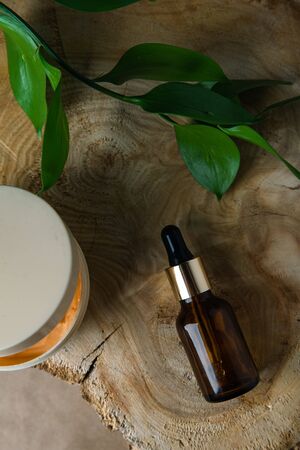1. Understanding Acne-Prone Skin and Its Unique Needs
If you struggle with acne-prone skin, you’re definitely not alone. Acne affects people of all ages and backgrounds in the United States, and its causes can be surprisingly complex. Let’s break down what makes acne-prone skin unique and why organic skincare can make a real difference.
Root Causes of Acne
Acne is more than just a surface issue. Here are some of the most common root causes:
| Factor | Description |
|---|---|
| Hormonal Changes | Fluctuations during puberty, menstrual cycles, pregnancy, or stress can trigger excess oil production. |
| Environmental Triggers | Pollution, humidity, and exposure to harsh chemicals can clog pores and irritate the skin. |
| Lifestyle Habits | Poor diet, lack of sleep, and high-stress levels may contribute to flare-ups. |
Why Acne-Prone Skin Needs Gentle Care
Acne-prone skin is often sensitive and easily irritated. Using harsh cleansers or strong chemicals might seem like a quick fix, but they can strip the skin’s natural barrier, causing even more inflammation and breakouts. What your skin really needs is gentle, non-irritating care that supports healing without making things worse.
The Benefits of Organic Skincare for Acne-Prone Skin
Organic skincare products are made with natural ingredients grown without synthetic pesticides or fertilizers. Here’s why that matters for acne-prone skin:
- No Harsh Chemicals: Organic formulas skip artificial fragrances, dyes, and preservatives that can trigger irritation.
- Nourishing Ingredients: Many organic products include calming plant extracts like aloe vera, chamomile, and tea tree oil—known for their soothing properties.
- Supports Skin Balance: Gentle organic cleansers and moisturizers help maintain your skin’s natural pH and barrier function.
- Eco-Friendly Choices: Choosing organic is better for both your skin and the environment—a win-win!
Key Takeaway
If you have acne-prone skin, looking for gentle, natural solutions can help calm irritation and support healing from within. Organic skincare offers a thoughtful approach tailored to your skin’s unique needs—without unnecessary chemicals or harsh additives.
2. Why Go Organic? The Benefits of Natural Skincare
If you have acne-prone skin, choosing the right products is key to getting calm, healthy skin. More people in the US are turning to organic skincare—and for good reason! Here’s why going organic can make a real difference for your skin and the planet.
Skip the Harsh Chemicals
Many traditional acne treatments use strong chemicals like sulfates, parabens, and synthetic fragrances. These can strip your skin’s natural oils, causing dryness or irritation, and sometimes even more breakouts. Organic skincare skips these harsh ingredients and uses gentle, natural alternatives that cleanse and treat without making things worse.
Support Eco-Friendly Practices
When you choose organic skincare, you’re not just helping your face—you’re helping the earth. Organic brands focus on eco-friendly farming, responsible sourcing, and sustainable packaging. This means fewer toxins in our waterways and less waste in landfills. It feels good to know your beauty routine is kind to the planet!
Nourish with Clean, Plant-Based Ingredients
Organic products are packed with plant-powered ingredients that really feed your skin. Think calming aloe vera, soothing chamomile, and antioxidant-rich green tea. These natural wonders help balance oil production, reduce redness, and support healing—perfect for sensitive, breakout-prone skin.
How Organic Stacks Up: Conventional vs. Organic Skincare
| Conventional Skincare | Organic Skincare | |
|---|---|---|
| Main Ingredients | Synthetic chemicals, artificial fragrances | Natural oils, plant extracts, essential oils |
| Skin Impact | Can cause irritation or dryness | Gentle & soothing for sensitive skin |
| Environmental Impact | May pollute water & soil | Sustainable & eco-friendly practices |
Why It Matters for Acne-Prone Skin
If your skin breaks out easily or feels sensitive, organic skincare helps you avoid triggers that might make things worse. Plus, these products are often non-comedogenic (meaning they won’t clog pores) and focus on calming inflammation instead of stripping your skin dry. That’s a win-win for anyone looking for clear, comfortable skin!

3. Key Organic Ingredients that Soothe and Heal Breakouts
When it comes to choosing organic skincare for acne-prone skin, knowing which natural ingredients actually work is half the battle. Here’s a look at some of the most effective plant-based powerhouses found in American organic products and how they support clear, healthy skin.
Top Organic Ingredients for Acne-Prone Skin
| Ingredient | Main Benefits | How It Works |
|---|---|---|
| Tea Tree Oil | Reduces bacteria, calms redness | Tea tree oil is known for its natural antibacterial and anti-inflammatory properties. It helps fight acne-causing bacteria and soothes irritated skin without over-drying. |
| Witch Hazel | Tightens pores, reduces inflammation | This botanical extract is often used as a gentle toner. It calms inflammation, controls oil, and helps shrink the appearance of pores—all without harsh chemicals. |
| Aloe Vera | Soothes irritation, speeds up healing | Aloe vera gel is famous for its cooling effect and ability to reduce redness. It supports the skin’s natural healing process and helps fade post-acne marks. |
| Green Tea | Fights free radicals, calms inflammation | Loaded with antioxidants, green tea helps protect your skin from environmental stressors. Its anti-inflammatory qualities make it a great choice for calming breakouts. |
| Calendula | Heals damaged skin, reduces swelling | Calendula extract has been used for centuries in soothing balms. It encourages cell repair and can gently reduce the discomfort of active blemishes. |
How to Use These Ingredients in Your Routine
- Cleansers: Look for gels or foams with tea tree oil or witch hazel to purify skin gently.
- Toners: Witch hazel and green tea toners help calm and balance skin after cleansing.
- Spot Treatments: Apply diluted tea tree oil or calendula directly on blemishes for targeted relief.
- Moisturizers & Gels: Aloe vera-based moisturizers hydrate without clogging pores, making them ideal for sensitive or oily skin types.
A Few Tips for Best Results:
- Always patch-test new ingredients before using them all over your face.
- If you use essential oils like tea tree, dilute them with a carrier oil to avoid irritation.
- Opt for USDA-certified organic labels to ensure purity and safety.
4. Building an Effective Organic Skincare Routine
Step-by-Step Guide to a Gentle, Acne-Friendly Routine
If you have acne-prone skin, building a daily skincare routine with organic products can make a big difference. Choosing natural ingredients helps reduce irritation and supports your skin’s healing process. Here’s how to create a simple, effective regimen:
Cleansing: Start Fresh
Use a gentle, sulfate-free cleanser made with organic ingredients like aloe vera or chamomile. Cleansing twice a day—morning and night—removes dirt, oil, and bacteria without stripping your skin.
Top Organic Cleansers for Acne-Prone Skin
| Product Type | Main Ingredients | Benefits |
|---|---|---|
| Gel Cleanser | Aloe Vera, Green Tea | Soothes inflammation, reduces redness |
| Cream Cleanser | Chamomile, Calendula | Hydrates while cleansing, calms irritation |
| Foam Cleanser | Tea Tree Oil, Witch Hazel | Fights bacteria, controls oil |
Moisturizing: Keep It Light and Nourishing
Even oily or acne-prone skin needs moisture. Look for lightweight, non-comedogenic moisturizers with organic oils like jojoba or rosehip. These won’t clog pores but will keep your skin balanced and soft.
Spot Treatments: Target Blemishes Naturally
If you get breakouts, spot treatments with natural ingredients can help. Look for products featuring tea tree oil, willow bark (natural source of salicylic acid), or honey. Dab these only on problem areas after cleansing and before moisturizing.
Sunscreen: Protect Without Breakouts
Sunscreen is crucial—even for acne-prone skin. Choose an organic mineral sunscreen with zinc oxide or titanium dioxide. These sit on top of the skin instead of soaking in, reducing the risk of clogged pores and irritation.
Consistency Is Key
The best results come from sticking with your routine every day. Avoid switching products too often; give each new product at least two weeks to see how your skin reacts.
Patch Testing: Play It Safe with New Products
Always patch test new skincare items before applying them all over your face. Apply a small amount to your inner arm or behind your ear and wait 24 hours to check for any reaction. This simple step can help prevent flare-ups and irritation.
Your Daily Organic Skincare Routine at a Glance
| Time of Day | Step | Recommended Product Types |
|---|---|---|
| Morning & Night | Cleansing | Sulfate-free gel/cream cleanser with soothing botanicals |
| Morning & Night | Moisturizing | Lightweight moisturizer with jojoba or rosehip oil |
| Mornings (Last Step) | Sunscreen | Zinc oxide/titanium dioxide mineral sunscreen |
| As Needed | Spot Treatment | Tea tree oil, willow bark extract, honey-based treatment |
With these steps and tips, you’re well on your way to healthier, clearer skin using organic solutions tailored for acne-prone types.
5. Real-Life Tips: Navigating Labels, Lifestyle, and Mindset
How to Read Organic Skincare Labels Like a Pro
Shopping for organic skincare in the U.S. can be confusing with all the buzzwords on packaging. Here are some key things to look for:
| Label Term | What It Really Means |
|---|---|
| USDA Organic | Contains at least 95% certified organic ingredients. This is the gold standard for organic products in America. |
| “Made with Organic Ingredients” | At least 70% of ingredients are certified organic; other ingredients are not synthetic. |
| Non-GMO | No genetically modified organisms; important for those seeking natural options. |
| Cruelty-Free | Not tested on animals. Look for logos like Leaping Bunny or PETA. |
| Fragrance-Free or Essential Oil Only | No artificial fragrances, which can irritate sensitive or acne-prone skin. |
Choosing Reputable Organic Brands in the US
- Do Your Research: Check brand websites for transparency about ingredient sourcing and certifications.
- Avoid Greenwashing: Just because something says “natural” doesn’t mean it’s truly organic—always look for official seals like USDA Organic.
- Check Reviews: See what real users say about how products work for acne-prone skin.
- Ask for Samples: Many stores offer sample sizes so you can test before committing to a full-sized product.
- Consult Professionals: Dermatologists and estheticians familiar with organic options can provide personalized recommendations.
The Holistic Approach: More Than Just Skincare Products
Caring for acne-prone skin isn’t just about what you put on your face—it’s also about your daily habits and mindset. Here’s how a holistic approach can make a big difference:
1. Stress Management Matters
- Meditation & Mindfulness: Practicing deep breathing, yoga, or meditation can help reduce stress hormones that may trigger breakouts.
- Sufficient Sleep: Aim for 7-9 hours per night to allow your skin to repair itself naturally.
- Set Boundaries: Take time for yourself—whether it’s reading, walking, or listening to music, find activities that help you unwind.
2. Diet: Feeding Your Skin from Within
| Eats to Favor | Eats to Limit |
|---|---|
| Berries, leafy greens, fatty fish (like salmon), nuts and seeds (omega-3s) | Sugary snacks, greasy fast food, dairy (for some people) |
- Hydrate: Drink plenty of water throughout the day—hydrated skin is happy skin!
- Add Antioxidants: Fruits and veggies rich in vitamins C and E help calm inflammation naturally.
- Avoid Triggers: If you notice certain foods make your skin worse, try cutting them out one at a time to see if things improve.
3. Mindset: Be Patient With Your Skin Journey
- No Quick Fixes: Organic solutions take time—give your new routine at least 6-8 weeks before judging results.
- Avoid Comparison: Everyone’s skin is unique. What works for others might not work for you—and that’s okay!
- Celebrate Progress: Even small improvements matter. Stay positive and keep learning what helps your skin thrive.
Navigating the world of organic skincare for acne-prone skin takes patience and a little detective work—but armed with these practical tips, you’re well on your way to clearer, healthier skin from the inside out!


